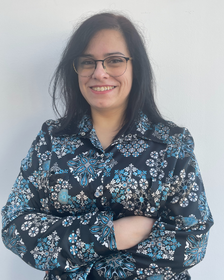The human gut is a complex and dynamic ecosystem essential for digestion, drug absorption, and overall health. However, traditional in vitro and animal models struggle to accurately replicate its intricate processes. In this webinar, we introduce a revolutionary multicompartmental gut-on-chip model, powered by the innovative MIVO® millifluidic device, designed to faithfully simulate the human intestinal environment with unprecedented precision.
Through the co-culture of human intestinal Caco-2 and HT-29 cells under fluid dynamic conditions, we replicate the complexities of the human bloodstream, achieving a functional and differentiated intestinal barrier within just 7-10 days—less than half the time required by conventional static cultures. This advanced model also incorporates a dual apical-basal flow system, enabling the formation of three-dimensional structures and mimicking the intestinal permeability observed in vivo.
Interestingly, this innovative approach also provides precise control over mucus thickness and barrier integrity—crucial parameters for studying intestinal diseases, drug absorption, and the intricate interactions between host and microbiota.
This cutting-edge technology redefines the standard for in vitro testing, offering unparalleled accuracy and predictive power for drug development, nutraceutical research, and the study of intestinal diseases.
Join us to explore how this next-generation platform can elevate your research and development capabilities, delivering results that faithfully replicate human physiology and expand the horizons of modern science.

ABOUT THE SPEAKERS
Dr. Elisabetta Palamà is a biotechnology researcher holding a Ph.D. in Translational Medicine. Her expertise centers on regenerative medicine, specifically the utilization of stem cells and extracellular vesicles for cartilage regeneration. Recent research efforts have focused on generating new therapeutic cell sources, derived from iPSCs, aimed at regenerating bone and cartilage tissues. During her postdoctoral research, Dr. Palamà also contributed to the development of innovative methods for tracking extracellular vesicles in vivo in animal models. Currently, at React4life, Dr. Palamà is involved in the validation of new 3D models within a fluid-dynamic environment for applications in oncology, pharmaceuticals, nutraceuticals, and cosmetics.

